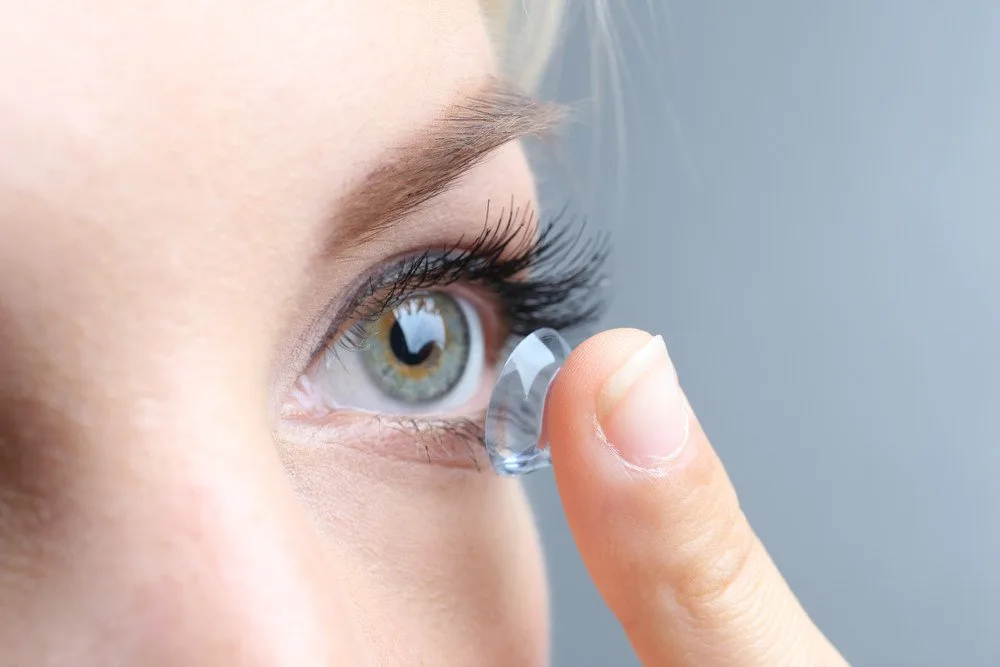Have you ever fogged your spectacles while sipping a hot cup of coffee? Ahh, the struggle is real. For anyone who needs visual aids, contact lenses would surely look like a better and more popular alternative. But if you’ve only ever worn glasses, this can look like a daunting shift. In this article, we talk about all you need to know before making the shift to contact lenses.
Getting The Right Fit
Before you decide to purchase contact lenses, you need to visit your eye doctor for a thorough eye check-up. This would not only include getting a new eye prescription (because contact lenses are placed closer to the eyes than your spectacles) but also a few tests assessing the interior health of your eye.
Depending on that, your doctor may prescribe you a trial lens pack that best fits your medical condition. A follow-up may be required after a week, one month, and once a year or two.
Putting Lenses On and Taking Them Out
At first, contact lens etiquette may seem intimidating to many of us. You can easily learn to put on and remove lenses with practice. But before that, ensure that your hands are clean, and your nails are trimmed clean and short, because you don’t want to hurt your eyes. Gently rub and rinse your lenses in a multipurpose solution before using them, and then place them into a fresh solution after use. Do not re-use the solution from your lens case and always refresh it.
Water and Contact Lenses Don’t Mix
If you run out of your multi-purpose cleaning solution, do not be tempted to rinse your contacts in tap water. Water, sometimes, may contain germs and microbes that may put you at risk of infection. Also, avoid wearing your lenses in the shower and pool.

Photo by Kampus Production: https://www.pexels.com/photo/couple-sleeping-in-bed-7555900/
Don’t Sleep With Your Lenses On
According to health care advisors, sleeping with contact lenses raises your risk of corneal infection. When you sleep with your contact lenses on, you increase your chances over five times of developing the risk of ocular keratitis, a form of corneal inflammation.
Our eyes come in contact with a wide variety of bacteria and microbes on a regular basis, but thanks to the protection offered by our tears, we can avoid infection.
However, by sleeping with contact lenses on, we restrict the supply of oxygen to the cornea hence deterring the rate of regeneration of fresh cells and secretion of lubricants and increasing the rate of corneal infection.
But most contact lenses, which are worn by around nine in ten contact lens wearers, are technologically designed to not hamper the oxygen supply to the cornea. But there is still a certain risk of infection associated with it if you sleep with your lenses on.
When Your Contacts Hurt and Cause Redness
Sometimes putting on your lenses may cause sudden redness and itching. Generally, this happens when there is something on or under your lens. In such a case, gently pull the lens out and rinse it with the solution to remove dirt. If your eyes are still red and irritated, try to avoid wearing them and if irritation persists, see an eye doctor.
A Variety of Lenses
Most of us wish that we were born with different eye colors. Isn’t it? Thanks to technology, we have so many colored contact lenses to choose from and experiment with. They spice up our look and definitely look appealing.
Earlier, there was no solution for people with astigmatism to opt for contact lenses. But now, with toric lenses, we have alternatives for them and likewise, for many other people who need visual aids.
Lenses and Make-up Routine
If you are someone who wears make-up, always remember to put on your lenses before applying make-up. Apply eye make-up on the outer eyelid margin only, not the inside to not irritate your eyes, and don’t forget to remove your lenses before removing make-up.
Bottom line
At first, it may seem like an intimidating task to switch from spectacles to contacts, but it can be one of the best decisions you make for yourself. Follow your doctor’s advice and maintain hygiene to glam up your look with contacts and have undeterred peripheral vision.





![women [longevity live]](https://longevitylive.com/wp-content/uploads/2020/01/photo-of-women-walking-down-the-street-1116984-100x100.jpg)









